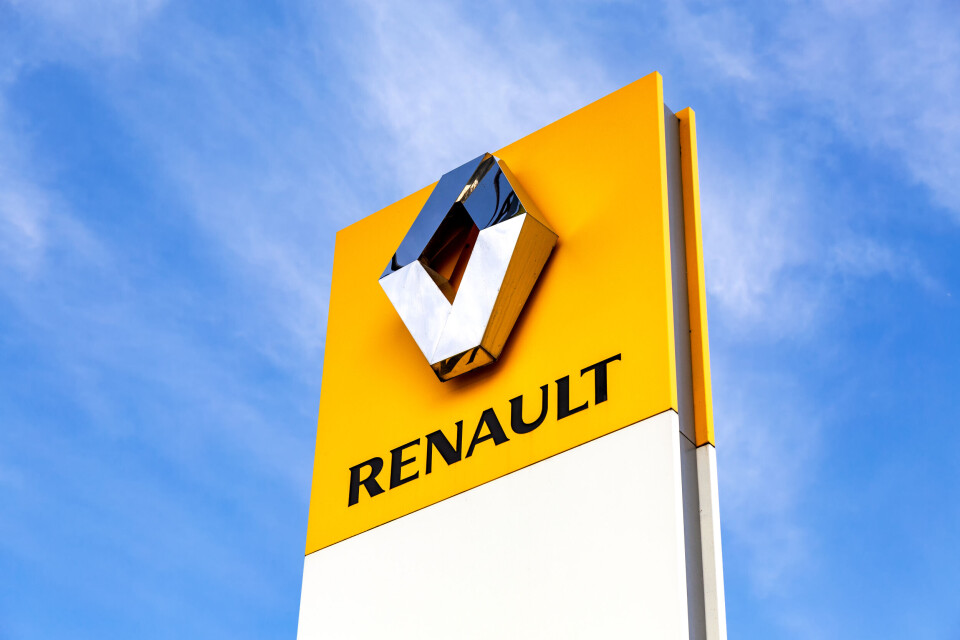-
New social media obligation for British and French visitors to the US to start ‘mid-2026’
There is confusion over the plan, with many expecting a February start date
-
Three more avalanche-related deaths in France, including one Briton
Some 28 deaths already recorded in the French Alps this season, many due to off-piste skiing or avalanches
-
French MPs vote in favour of renewed recognition of UK medical degrees
Post-Brexit rules mean UK degree holders have been limited in their ability to work in France
Nearly 1,800 to file complaint to French carmaker Renault over defects
Their lawyer has called for a criminal investigation. Renault says its 'cars remain safe'

Almost 1,800 clients in France are set to file an official complaint to French car manufacturer Renault next week, over what their lawyer has called engine defects.
The complaint against Renault-Nissan is set to be filed on Monday, June 5, to the Correctional tribunal in Nanterre (Hauts-de-Seine).
Lawyer for the 1,789 unhappy clients, Maître Christophe Lèguevaques, said the case was being brought due to “a defective engine, in the sense that there is a design fault that causes it to over-consume oil”, and mix oil with fuel, which can break the engine.
Sudden engine failure
The issue “generates carbon waste that will clump together in the valves,” the lawyer added, claiming that “after 40,000 to 80,000 kilometres, one or two valves will break” as a direct result of the fault. This would be particularly dangerous, he said, because the engine can break suddenly.
He said: “You lose power at 130 km/h on the motorway…and the speed drops to 50 or 60 km/h [which would be] extremely distressing for the driver, who wouldn’t understand what is happening, and now has to pull over to the side of the road and avoid oncoming traffic.”
The clients had bought vehicles under the brands Renault, Dacia, and Nissan.
Read also: What should you do if your vehicle breaks down on a French motorway?
‘An engine that could break at any time’
Mr Lèguevaques said that the charges were for “aggravated deception, misleading commercial practices and endangering the lives of others". He claimed Renault “has known about the defects in these engines since 2015” but concealed the information, which, he said, “justifies a criminal complaint”.
He said that “we have been able to demonstrate that Renault knew about this engine defect since 2015 and that Renault continues to deny it", despite selling “consumers vehicles equipped with an engine that could break at any time without telling them”.
Consumer group UFC-Que Choisir had also published a report in 2019, in which it claimed that Renault had circulated an internal notice warning of the problem.
The engine model concerned is a 1.2TCe motor, which was produced between October 2012 and June 2016. More than 130,000 vehicles in France were built with this motor, show Renault’s records.
Renault told Le Parisien that “less than 10% of them have had an issue with overconsumption of oil”.
The clients’ lawyer said that more than 400,000 vehicles are affected by this problem Europe-wide.
The lawyer is now calling "a criminal investigation be opened to establish the whole truth about this practice”. He said that “Renault be punished” and that there needs to be “appropriate financial compensation for those who have suffered this risk”.
He said that the motor is particularly found in:
- Renault Mégane III and IV, Captur, Clio, Kadjar, Kangoo II, Scenic and Grand Scenic III
- Dacia Duster, Duster II, Lodgy, and Dokker
- Nissan Qashqai, Juke, and Pulsar
- Mercedes Citan
Read also: France driving: What must residents and visitors carry in their cars?
‘The vehicle remains safe’
In its defence, Renault told FranceInfo that it “continues to examine the requests made to it" and had already put a “technical and financial support” package in place for anyone claiming such an issue.
It said: “[To date] 93% of the customer cases identified have been paid for.”
It also sought to reassure customers, saying: “Renault Group would like to remind you that the vehicle remains safe and complies with the regulations. The safety systems remain available and active to protect its passengers.”
Related articles
Diesel drivers in France can face €1,000 bills if AdBlue system fails
Iconic French car is unrecognisable in Renault’s electric SUV redesign
























